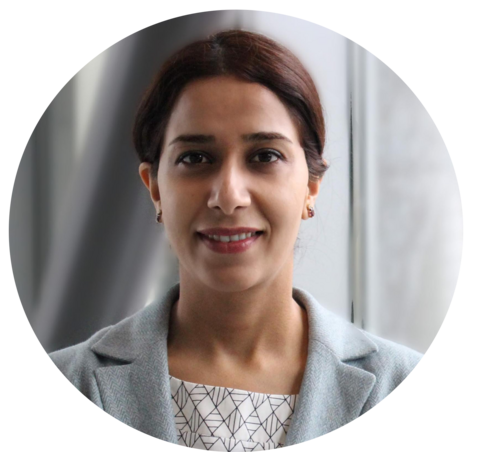
We are pleased to announce the SOMMeRS 2023: Southern Ontario Medical MicroRobotics Symposium on Tuesday, July 11, 2023, from 8:30 a.m. to 6:00 p.m. EST on the Waterloo campus. Registration is required, but available free of charge for in-person participation.
SOMMeRS is a celebration of over 20 years of medical microrobotics research with pioneers in the field. The symposium will shine a spotlight on the growing multidisciplinary field of medical nano/microrobotics in our community at Waterloo and neighbouring cities in Southern Ontario. This is a great opportunity for active researchers in microrobotics and related topics to connect and share their progress and challenges.
Nano/microrobotics is an emerging multidisciplinary field that brings together different disciplines of science, engineering, and medicine with the goal of revolutionizing medical interventions such as noninvasive surgery, targeted drug and cell delivery and diagnostics.
Graduate students and postdocs: present your work during the poster session with a chance to win a poster prize, kindly sponsored by Wiley’s Advanced Intelligent Systems!
Register now
Contact SOMMeRS organizers Veronika Magdanz and Hamed Shahsavan with questions.
| Time (Eastern Standard Time (EST) UTC−05:00) | Session |
|---|---|
| 8:30 a.m. | Registration |
|
9:00 - 9:45 a.m. |
Microbots Go In-Vivo: From Test Tubes to Live AnimalsPlenary speaker: Dr. Joseph Wang, Distinguished Professor, Department of Nanoengineering | University of California San Diego Dr. Wang will be recognized for his career achievements |
| 9:45 - 10:15 a.m. |
Targeting the right target for cancer fighting nanorobotsKeynote speaker: Dr. Sylvain Martel, Professor, Department of Computer and Software Engineering | Polytechnique Montréal |
| 10:15 - 10:30 a.m. | Break |
| 10:30 - 10:50 a.m. |
Mechanical nanosurgery of chemoresistant glioblastoma using magnetically controlled carbon nanotubesInvited speaker: Dr. Xian Wang, Assistant Professor, Department of Mechanical and Materials Engineering | Queen's University |
| 10:50 - 11:10 a.m. |
How large does active matter have to be to be smart?Invited speaker: Dr. Juliane Simmchen, Department of Pure and Applied Chemistry | Strathclyde University, Scotland |
| 11:10 - 11:30 a.m. |
New Catalysts Design for NanomotorsInvited speaker: Dr. Il-Doo Kim, Professor, Department of Materials Science and Engineering | Korea Advanced Institute of Science & Technology (KAIST) |
| 11:30 a.m. - 11:50 a.m. |
Micro-Scale Surgery: Magnetic Robots in the Gut and BrainInvited speaker: Dr. Eric Diller, Associate Professor, Department of Mechanical and Industrial Engineering | University of Toronto |
| 11:50 a.m. - 12:45 p.m. | Lunch |
| 12:45 - 1:15 p.m. |
Smart 3D Microtechnologies for Biology and Human HealthKeynote speaker: Dr. David Gracias, Professor, Department of Chemical and Biomolecular Engineering | Johns Hopkins University |
| 1:15 - 1:35 p.m. |
Miniaturized Robots: from Chemical to Biological EngineeringInvited speaker: Dr. Jinxing Li, Assistant Professor, Department of Biomedical Engineering | Michigan State University |
| 1:35 - 1:55 p.m. |
Protein-inspired materials in small-scale roboticsInvited speaker: Dr. Abdon Pena-Francesch, Assistant Professor, Department of Materials Science and Engineering | University of Michigan |
| 1:55 - 2:25 p.m. |
Enzyme-powered nanomotors crossing biological barriers in vivoKeynote speaker: Dr. Samuel Sánchez Ordóñez, ICREA Professor, Institute for Bioengineering of Catalonia | The Barcelona Institute for Science and Technology |
| 2:25 - 2:40 p.m. | Break |
| 2:40 - 3:00 p.m. |
Soft Robotics for Early Detection and Treatment of CancerInvited speaker: Dr. Onaizah Onaizah, Assistant Professor, Department of Computing and Software | McMaster University |
| 3:00 - 3:20 p.m. |
Building a Better Interface: Engineering the Nano-Bio Interaction for Biomedical ApplicationsInvited speaker: Dr. Zeinab Jahed, Department of Nanoengineering | University of California San Diego |
| 3:20 - 3:30 p.m. |
Smart Materials for MicroroboticsFlash talk speaker: Dr. Hamed Shahsavan, Department of Chemical Engineering | University of Waterloo |
| 3:30 - 3:40 p.m. |
Novel Hydrogel Microneedle Assays for Health TrackingFlash talk speaker: Dr. Mahla Poudineh, Department of Electrical and Computer Engineering | University of Waterloo |
| 3:40 - 3:50 p.m. |
Ultrasonics: Opportunities for Building Synergy with MicroroboticsFlash talk speaker: Dr. Alfred Yu, Department of Electrical and Computer Engineering | University of Waterloo |
| 3:50 - 4:00 p.m. |
Bioinspired and biotemplated microrobotsFlash talk speaker: Dr. Veronika Magdanz, Department of Systems Design Engineering | University of Waterloo |
| 4:00 - 4:10 p.m. |
Magnetically levitated mirorobots for micromanipulation and biomedical applicationsFlash talk speaker: Dr. Behrad Khamesee, Department of Mechanical and Mechatronics Engineering | University of Waterloo |
| 4:10 - 5:00 p.m. | Poster session and networking |
| 5:00 - 5:15 p.m. | Poster awards and closing |
| 5:10 - 6:00 p.m. | Campus and lab tours |
This event is kindly sponsored by the Centre for Bioengineering and Biotechnology, the Faculty of Engineering, the Faculty of Science, the Department of Systems Design Engineering, the Department of Chemical Engineering at the University of Waterloo.
















